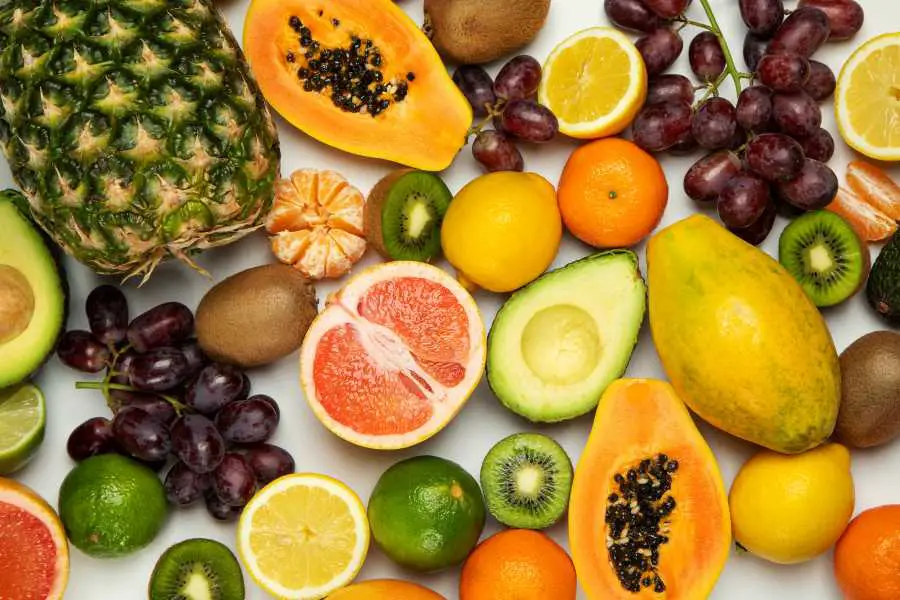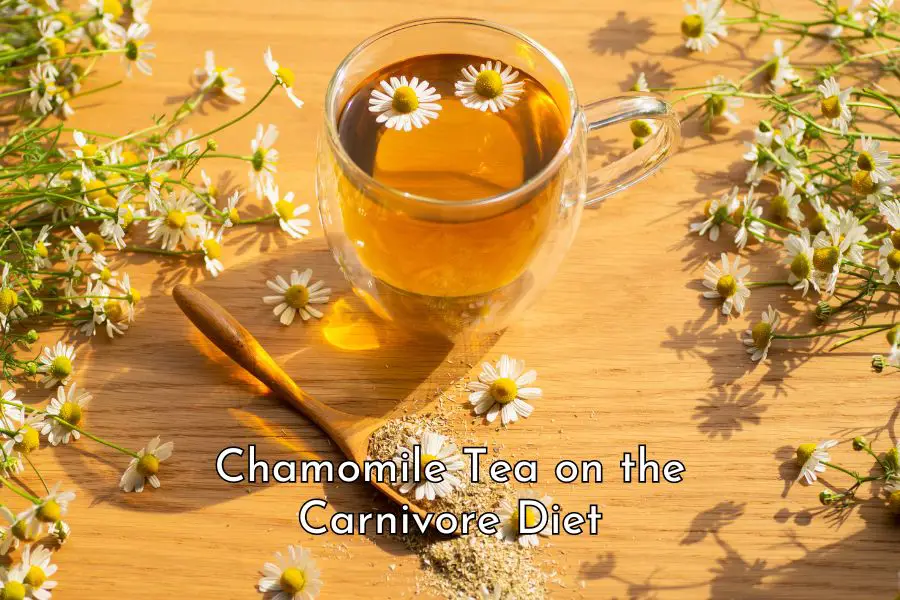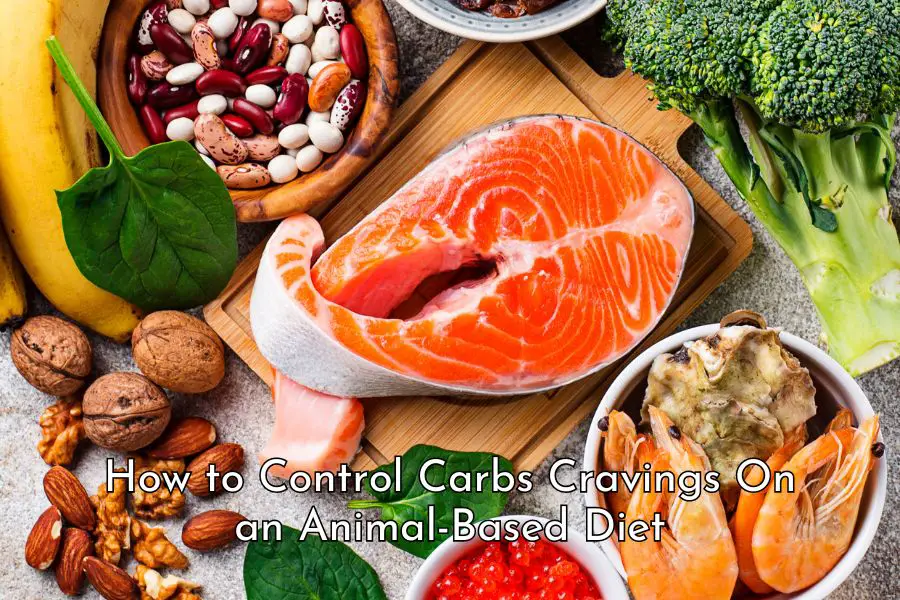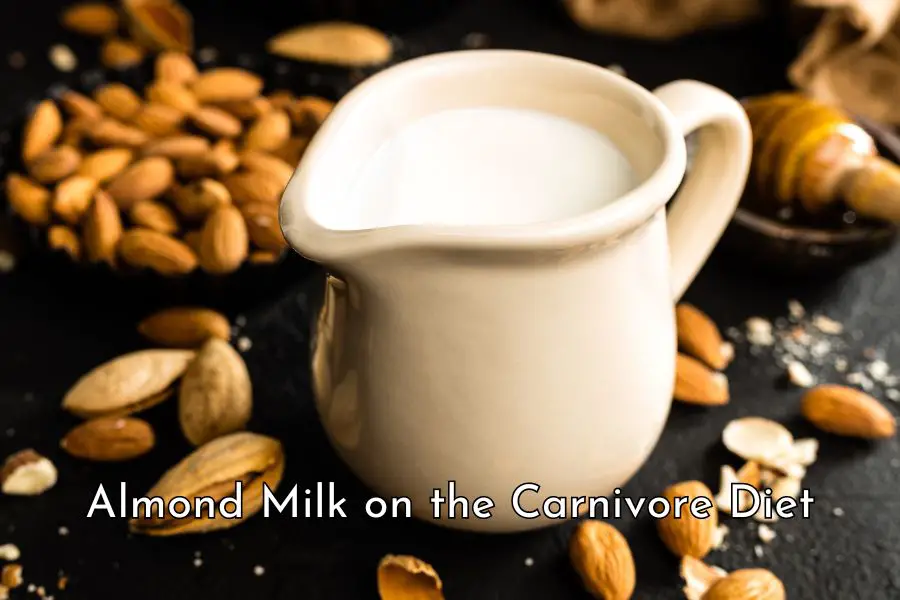Fruits are definitely not a carnivore food but they were a part of our ancestors’ diet. Are there any benefits in adding fruits to your carnivore-ish diet?
In my opinion, for some people, adding a small amount of fruits to a carnivore-ish diet or a meat-based diet can be beneficial because:
- They can help you meet all nutrient needs easier
- They can help you maintain metabolic flexibility
- They can expose you to an acute stressor in the form of plant anti-nutrients which can be beneficial.
However, fruits are not a good fit for everyone, for some people, fruits should definitely be avoided.
The remainder of the post will go into more detail as to why adding fruits to a carnivore diet can be beneficial, how best to add fruits to your diet, and who should avoid fruits altogether.
Why fruits are okay on a carnivore-ish diet?
As mentioned above, my view is that it’s fine to add some fruits to your carnivore-ish diet or meat-based diet if you wish for the reasons set out below.
1. Fruits can help you meet all nutrient needs easier
Although a carnivore diet can definitely provide you with all the nutrients that your body needs, for some people, adding a small amount of fruits can help them meet their nutritional requirements easier.
Vitamin C is a good example. While vitamin C can be found in abundance in many fruits and vegetables, it is very low in animal-sourced foods. A 100-gram serving of grain-fed beef has only 1.6 mg of vitamin C, whereas a 100-gram serving of oranges has 53 mg of vitamin C. [1, 2]
Because your vitamin C requirement on the carnivore diet is lower than that on an omnivore diet (due to the negligible amount of carbohydrate intake), you can still get enough vitamin C to prevent scurvy by eating nose-to-tail and by not overcooking your meat. [3, 4]
However, for those who don’t eat organ meat or enjoy their meat well-cooked, having a serving of fruits a day can help them boost their vitamin C intake significantly.
Another example is folate.
The best source of folate on the carnivore diet is liver (beef, lamb, pork or chicken liver) and eggs while muscle meat has very little folate.
For example, 100 grams of beef liver has 290 mcg of folate (meeting 72% RDA) while 100 grams of ground beef has only 6 mcg of folate (meeting 1% of RDA). [5, 6]
Therefore, if you don’t incorporate organ meat into your diet regularly, adding fruits to your diet occasionally can help.
Some fruits like avocadoes, oranges, papayas, strawberries, blackberries, and bananas are good sources of folate. For example, 100 grams of avocado flesh has 89 mcg of folate (meeting 22% RDA) and 100 grams of papayas has 38 mcg of folate (meeting 10% of RDA). [7, 8]
2. Fruits can help you maintain metabolic flexibility
If you are on a strict carnivore diet for a long period of time, it’s likely that you won’t feel very well or even feel very sick if you suddenly have to eat a bit of fruits or vegetables to survive.
However, if you add a small amount of seasonal fruits and vegetables to your diet a few times a week, your metabolic flexibility will be maintained.
If you suddenly have to rely on mostly plant food to survive, you’ll fare much better than those who have always been on a strict carnivore diet. Your ability to eat plant food without falling sick will be your survival advantage.
Our ancestors used plant food as a survival food and I think it is a good idea to treat fruits and vegetables as so. One can never say never.
As a side note, it is also generally more socially acceptable and easier to blend in if you go, for example, 95% carnivore rather than 100% carnivore.
3. Antinutrients in fruits can be a form of beneficial dietary acute stressors
A small quantity of fruits can expose your body to an acute stressor in the form of plant anti-nutrients.
When you consume plant-based foods, anti-nutrients present in those foods cause inflammation in your body. In response, your body produces its own antioxidant called glutathione to reduce inflammation.
Over time, your body will adapt to those hormesis stressors and become stronger.
Of course, consuming too much and too often, plant anti-nutrient will become a form of chronic stressors instead.
4. Fruits were part of our ancestors’ diet
There is no doubt that our ancestors thrived on a heavily meat-based diet and the human body today is still suited to a meat-based diet. [9]
However, there is no evidence that they had been eating meat exclusively. While we don’t know to what extent plant food had featured in our ancestors’ diet, given the fact that they descended from plant-eating primates, they were likely to have at least eaten some plant food in the wild between successful hunts to survive.
Some people even argue that animal-sourced food plus fruits and honey is the ultimate best combination.
For people who are metabolically healthy, this may well be true, but for others, this is not an option.
In the section below, we will look at a group of people for whom fruits may best be avoided.
Who should avoid fruits?
1. People with fruit intolerance
Some people don’t feel well even with just a little bit of fruits. This is not surprising because although fruits are nutritious, they are also high in ant-nutrients or natural pesticides. [10]
For example, some berries which are low in sugar and are believed to be low toxin fruits can be high in oxalates and salicylate.
Raspberries, elderberries and black currants are very high in oxalates while most fruits contain considerable amounts of salicylate. [11, 12, 13, 14]
Oxalates or oxalate acids are anti-nutrients that plants produce to protect themselves. Once consumed, oxalate binds with calcium and other minerals to form oxalate crystals, the main ingredient in kidney stones. Oxalate crystals can cause damages to the eyes, immune system, neurological system, GI tract, and connective tissues. [15]
Similarly, salicylate is another compound that plants produce to protect themselves. People who are sensitive to salicylate can suffer from a number of serious symptoms such as headaches, migraines, respiratory irritation, gastrointestinal discomfort, irritability, joint pain, swelling and fluid retention, mouth ulcers, sore and itchy eyes, etc. [16]
The best way to find out if you are sensitive to a particular fruit is to test it out.
To test for fruit sensitivity, in addition to the food that you know you are okay with, have only one serving of the fruit you want to test out.
Do not eat it again for the next three days and watch out for any reaction during this time.
2. People who are trying to treat some chronic conditions
If you start the carnivore diet in the hope of fixing some underlying health problems, it’s best to stick to a strict version of the carnivore diet of only ruminant meat, fat and organs.
To support healing, you need the most nutrient-dense food and the best quality food possible. Ruminant meat, fat and organs meet these criteria.
To support healing, you also want to eliminate or minimize your toxin intake whether it’s from fruits, vegetables or from your environment.
The ICMNI, a centre in Hungary, has been using a high-fat animal-based diet since 2012 to treat many chronic conditions including diabetes, autoimmune diseases, cancer and intestinal permeability.
Their view with regard to fruits and vegetables is that:
- If you have conditions like intestinal permeability or autoimmune diseases, you need to be on a strict high-fat animal-based diet with no plant food allowed
- The paleolithic ketogenic diet (i.e. high fat animal based diet) works best without the consumption of fruits and vegetables
- If you are a generally healthy person with a simple health problem such as obesity or diabetes, fruits and vegetables may be allowed depending on your conditions, but they should come from eco sources
- Fruits and vegetables should not exceed 30% of a meal (in volume)
- Fruits should be low in sugar content in order to maintain ketosis status.
However, once your health problems are resolved, there is no reason why you can’t test out and re-introduce fruits to your diet again if you wish.
With clinical experience from over 4,000 patients, I consider their diet protocol is directly relevant to people who are trying to treat chronic health conditions with the carnivore diet.
3. People who are trying to lose weight
If you are trying to lose weight, it may not be a good idea to add fruits to your diet.
To lose weight, you want your body to dig into the fat storage and burn it off for fuel, i.e. staying in ketosis.
Because fruits these days are all bigger and sweeter compared to those available during our ancestors’ time, there is a risk that you would consume too much and get out of ketosis.
Of course, if you enjoy fruits, you can try adding them to your diet and see if they have any impact on your weight loss progress.
How should you add fruits to your carnivore-ish diet?
While on principle, fruits are okay to add to your carnivore-ish or meat-based diet, most fruits available today weren’t around pre-agriculture, our ancestors didn’t eat the kinds of fruits we eat today.
If you would like to add fruits to your diet, the best practices are:
- Choose seasonal fruits
- Consume fruits in small quantities
- Choose organic fruits
- Choose fruits low in sugar.
1. Fruits should be eaten with seasons
Before the advent of agriculture, the only fruits that our ancestors ate were seasonal fruits and, unless they lived in the tropics, they probably didn’t eat a lot of fruits at all.
Imagine going hiking in the wild, how often do you see fruits? Not very often at all and, unlike modern days’ domesticated fruits, they are generally very small.
Therefore, if you want to add fruits to your diet, try to eat with seasons.
Eating with seasons also allows your body the time to deal with plant toxins from that particular seasonal fruit before getting exposure to other kinds of plant toxins.
There is a theory that fruits are the only part of plants that are meant to be eaten. It goes like this: plants want to spread their seeds far from their sources for better survival and have developed a way to communicate with animals via vibrant colors, fragrances, and tastes of the fruits.
This has never been proven and doesn’t explain why so many colorful and inviting fruits are poisonous to humans and some animals.
My alternative theory is plants don’t want to be eaten and they also don’t want their fruits and seeds to be eaten. All fruits and their seeds have anti-nutrient compounds in them that serve to defend themselves from predators.
However, no matter how good their self-defense mechanisms are, some animal species have evolved and adapted over a very long course of the evolutionary process and are able to eat those fruits without health consequences.
The deadly stonefish, for example, is still gobbled up by sharks, stingrays, eels, and sea snakes despite its lethal venom.
Furthermore, some people hypothesize that the soft part of the fruit is there as a way of offering by plants to animals in exchange for getting their seeds scattered beyond their immediate vicinity.
My alternative hypothesis is the soft part of the fruit is a perfect fertile pouch designed to give the seeds inside the best start in life. For example, a pumpkin left rotten will be the best place for the seeds inside to grow.
In summary, my view is plants don’t want their fruits to be eaten either. Even the fruits considered least toxic like berries and avocados still have compounds that cause health problems in some people and animals.
Therefore, if you want to add fruits to your meat-based diet, I think it’s best to eat with seasons to allow your body to cycle through different anti-nutrients rather than accumulating a certain group of anti-nutrients all year round.
Eating with seasons, however, can be hard nowadays given the abundance of fruits available all year round in grocery stores thanks to better preservation means and global trade.
An alternative could be to make a long list of fruits that you like to eat and rotate through them instead of eating a favorite fruit all the time.
Fruits should be eaten in small quantities
Thanks to thousands of years of selectively breeding by farmers and genetic engineering in recent times, fruits today are all bigger, juicier, and a lot sweeter compared to what our ancestors used to eat pre-agriculture.
As a result, like any food that is high in sugar, it is very easy to overeat fruit.
Eating too much fruit will spike your blood sugar, may kick you out of ketosis as well as sabotage your weight loss progress.
If you make fruit a part of your diet, I don’t think it’s a good idea to eat as much fruit as you like.
It’s better to set some limit like three or four servings a week or one to two servings a day depending on how physically active you are and your health conditions.
Some people argue that if your ancestors lived near the equator in the tropical climate, you might be able to handle a bit more fruits and carbs in general.
This sounds logical to me, however, the only way to find out if it’s true in your case is to test it out with different quantities of fruits to see how you feel.
In addition, to help limit consumption, eat whole fresh fruits and avoid fruit juices, fruit smoothies and dried fruits which are especially high in sugar.
Choose organic fruits
If you can afford them, please get organic fruits.
Conventional fruits are heavily sprayed with chemicals. If you can’t afford organic produce, please try to avoid the most sprayed fruits in the list below or have them very sparingly.
According to the Environmental Working Group’s 2021 Shopper’s Guide to Pesticides in Produce, below are the most heavily sprayed fruits: [17]
- Strawberries
- Nectarines
- Apples
- Grapes
- Cherries
- Peaches
- Pears.
You can eat more of the following conventional fruits which are amongst the Clean Fifteen produce list according to the Environmental Working Group’s guide: [18]
- Avocados
- Pineapple
- Papaya
- Kiwi
- Honeydew melon
- Cantaloupe.
Choose fruits low in sugar
As mentioned above, due to selective breeding by farmers over thousands of years as well as genetic engineering, fruits these days are all bigger, juicier, and a lot sweeter.
Unless you are metabolically healthy, physically active and work out a lot, it’s best to stay with low sugar fruits. Below are examples of low sugar fruits (sugar and calorie contents are per 100 grams).
| Fruit | Sugar (g) | Calorie (cal) |
|---|---|---|
| Lemons | 2.4 | 25 |
| Limes | 1.7 | 25 |
| Strawberries | 4.9 | 32 |
| Blackberries | 3.5 | 43 |
| Mulberries | 8.1 | 43 |
| Blueberries | 10.0 | 57 |
| Raspberries | 4.4 | 52 |
| Starfruits | 4.0 | 31 |
| Currants | 7.4 | 56 |
| Kiwi fruits | 9.0 | 61 |
| Avocados | 8.6 | 167 |
| Watermelons | 6.2 | 30 |
| Honeydew melons | 8.1 | 36 |
| Grapefruits | 6.9 | 42 |
| Oranges | 8.5 | 49 |
| Mandarins | 10.6 | 53 |
| Apples | 10.4 | 52 |
Some fruits such as bananas, mangoes, cherries and litchis are especially high in sugar so you either need to be mindful of your intake or avoid them.
For your information, Dr. Paul Saladino in his book The Carnivore Code lists the following as the least toxic fruits:
- Winter/summer squash
- Avocados
- Cucumbers (without skin or seeds)
- Olives
- Seasonal berries.
I’m not sure on what criteria these are considered low toxins because, as discussed above, even berries, which are universally touted as one of the healthiest foods, can be problematic for some people.
Conclusion
If you are generally healthy, it’s okay to add fruits to your meat-based diet.
If you have some health issues that you are trying to fix with the carnivore diet, avoid all fruits until your health problems are completely resolved.
You can test fruits for intolerance afterward and add them back to your diet as you see fit.
If you choose to add fruits to your diet, eat organic and seasonal fruits in small quantities.
If you have space in your backyard, growing a mini orchard would be the best way to ensure you truly eat organic, seasonal and local.
If you find this post helpful, please consider sharing this post and my site with your family, friends, and followers. That would be much appreciated. Please also check out my library of articles on the carnivore diet here which is updated regularly.
Disclaimer: The information in this post is for reference purposes only and not intended to constitute or replace professional medical advice. Please consult a qualified medical professional before making any changes to your diet or lifestyle.
Photo credit: Julia Zolotova on Unsplash





